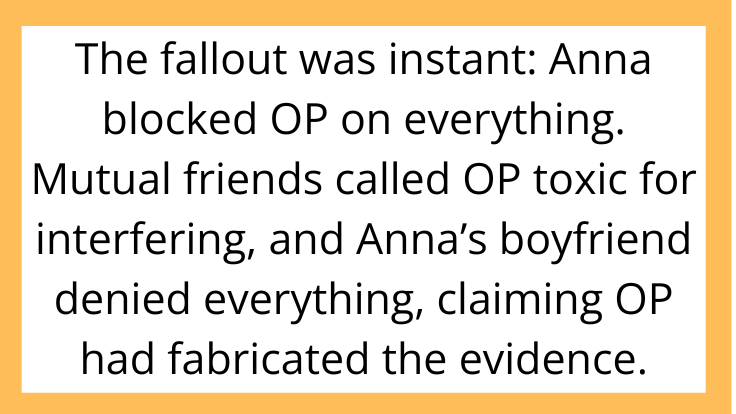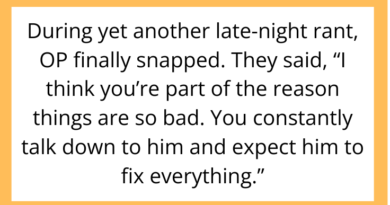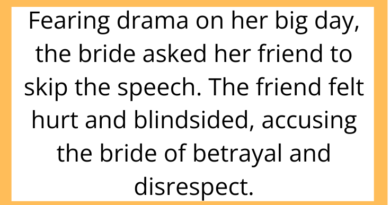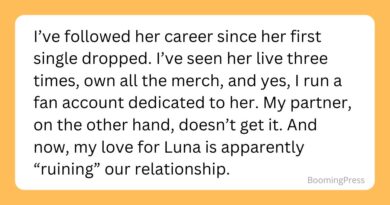AITAH for Telling My Best Friend Her Boyfriend Is Cheating on Her?
When I came across this post on r/AITAH, it immediately pulled me in. The poster was torn between loyalty to a lifelong friend and the fear of destroying her relationship. The question seemed simple: If you know someone is being cheated on, are you obligated to speak up? But as always, the reality was far more complicated.
Today, we’ll break down this dilemma, explore all sides, and ask whether being honest makes you the villain in your own story.
The Story Behind the Conflict

The original poster (OP) explained that they’d been best friends with “Anna” since childhood. They considered her a sister and had always been her confidant through every heartbreak.
Recently, OP spotted Anna’s boyfriend with another woman—holding hands, kissing, acting clearly like a couple. OP even took photos to be sure she wasn’t misunderstanding the situation.
After wrestling with what to do, OP decided to tell Anna privately. Instead of gratitude, Anna exploded in anger. She accused OP of lying, trying to sabotage her happiness, and being jealous of her relationship.
The fallout was instant: Anna blocked OP on everything. Mutual friends called OP toxic for interfering, and Anna’s boyfriend denied everything, claiming OP had fabricated the evidence.
Now, OP is questioning everything: Did she do the right thing, or was it truly none of her business?
Loyalty vs. Consequences: The Core Dilemma

The Argument for Staying Silent
Some commenters argued that OP should have stayed out of it entirely. They pointed out that people in love often refuse to see the truth, and bringing it up can backfire.
In their view, OP’s involvement only caused pain, without actually ending the cheating or helping Anna see reality. They argued that unless Anna had asked for the information, OP had overstepped by acting like a moral authority.
This perspective insists that sometimes protecting your friendship means letting people learn the truth on their own terms.
The Case for Telling the Truth
Others praised OP’s courage and said withholding the truth would have been a greater betrayal. They argued that if you claim to care about someone, you owe them honesty—especially when their wellbeing is at stake.
For this camp, the fallout wasn’t OP’s fault. Instead, they blamed Anna’s denial and the boyfriend’s manipulation. They saw OP as a true friend willing to risk everything to protect someone she loved.
The Role of Evidence and Timing

Was Showing Photos Too Extreme?
One detail that sparked heated debate was OP taking photos of the cheating. Some readers said this crossed a line from concerned friend to invasive spy.
Others insisted that without proof, Anna never would have believed OP, and she might have painted OP as a liar regardless.
This raises an important question: Is evidence helpful or humiliating? In situations like this, how you share information matters as much as what you share.
When Is the Right Time to Speak Up?
Timing is everything. Some commenters said OP should have waited until she had a calmer, more private moment to talk. Others felt there is never a perfect time—cheating is always painful news.
What everyone agreed on: Once you decide to share, you have to accept that you can’t control how the other person will react.
Why People Shoot the Messenger
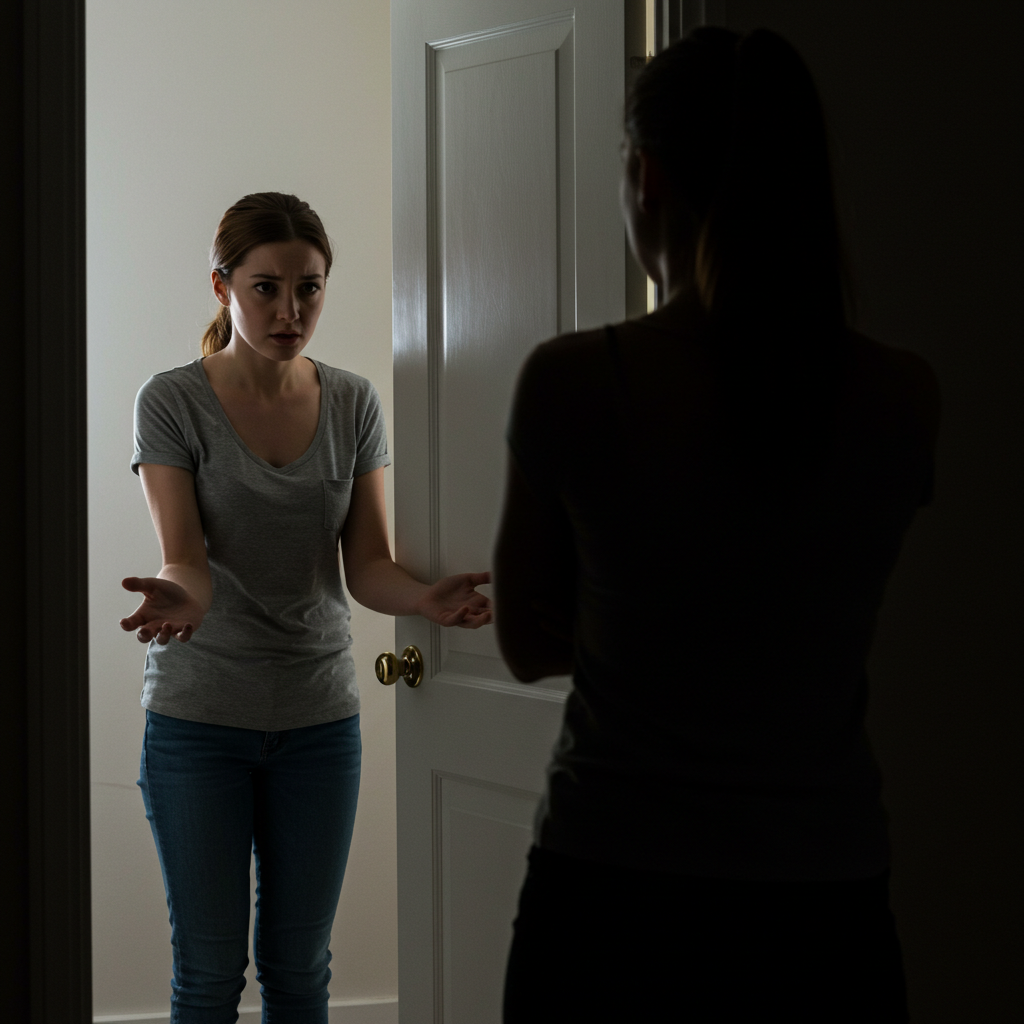
A recurring theme in the comments was that when someone is confronted with betrayal, their first instinct is often denial. It feels easier to blame the person delivering the bad news than to accept a loved one has deceived them.
That doesn’t make it fair, but it does explain why OP became the villain in Anna’s eyes.
Lessons and Takeaways

Whether you think OP was right or wrong, this scenario offers important lessons:
-
Prepare for fallout. Telling the truth can cost you a friendship, no matter how pure your intentions are.
-
Be clear about your motives. If you’re driven by concern—not revenge or jealousy—you can stand by your choice with integrity.
-
Offer support, not ultimatums. Telling someone about infidelity should be paired with compassion and the space to process.
-
Know your boundaries. Not everyone wants the truth, and sometimes you have to let go when someone shuts you out.
Final Thoughts

So, was OP the bad guy for telling Anna her boyfriend was cheating?
The community was split, but most agreed that honesty—delivered respectfully—was better than letting a friend live a lie. In the end, you can’t control how someone reacts to painful news, but you can be certain you acted from a place of care.
